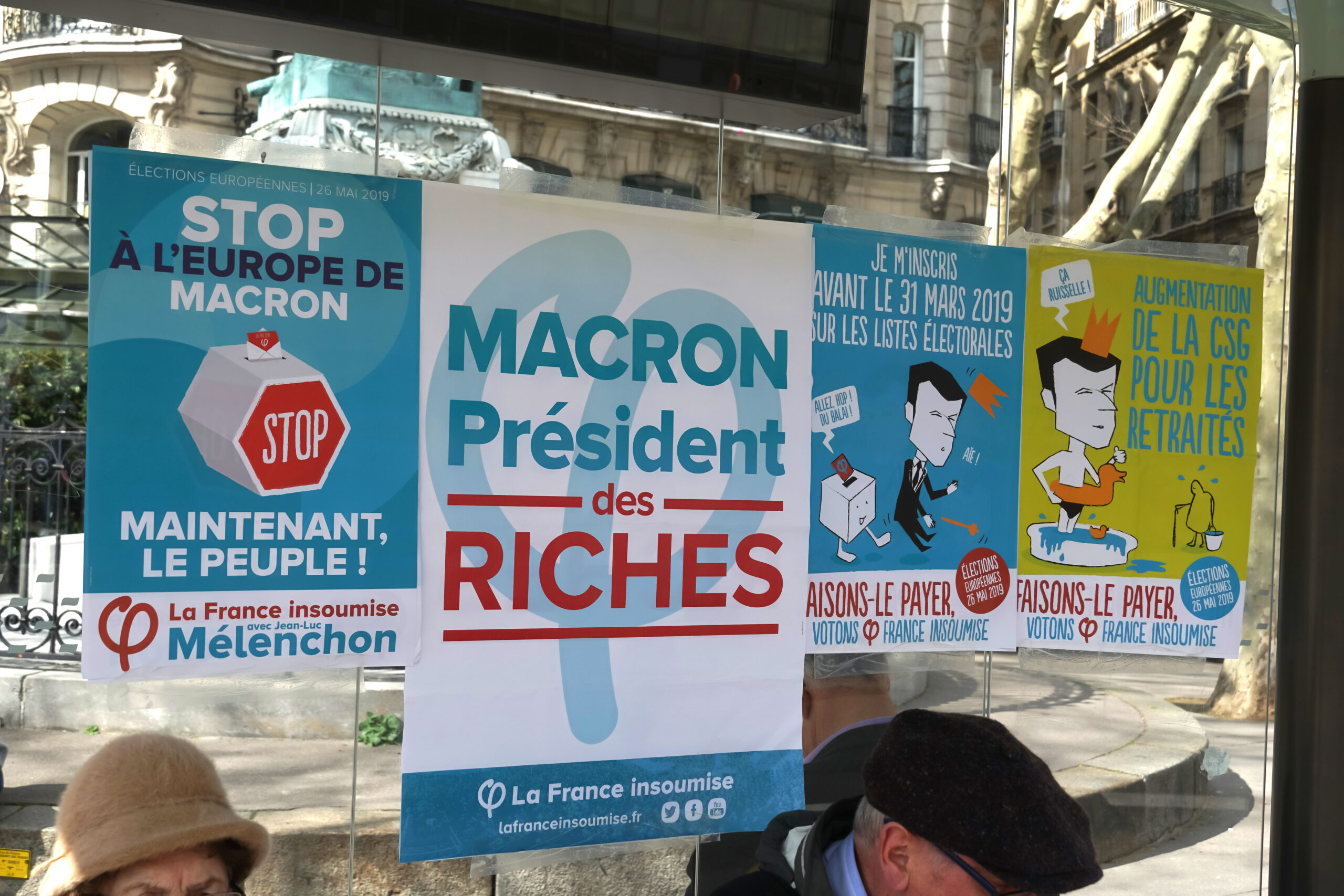Campaign Chronicles: Mélenchon and NATO

The French presidential elections will be held on April 10 and April 24. The newly elected president will take office on May 13. The results of these elections have the potential to hinder, if not destroy, the NATO and European Union effort to stop Russian aggression–against Ukraine, and indeed against the eastern European NATO members.
France holds its elections in two rounds. In the first, every candidate who has qualified, according to their somewhat arcane rules, can run; this year, twelve candidates have been certified as eligible. Most of these will get between 2-4% of the vote, if that, and will be disqualified from the second round, which pits against each other the two candidates with the highest vote totals.
This year there are five candidates who might potentially be in the final round (as seen below, Macron, Zemmour, Mélenchon, Le Pen), and three of these are opposed to NATO as well as the EU; the stance of the fourth (Pécresse, not shown) is ambiguous. While it is unlikely that any of these four could change course immediately, the loss of a strong French presence in the current crisis could be disastrous.
Of the five, incumbent president Emmanuel Macron, running for his second five-year term, is a strong supporter of both the European Union and NATO. In addition, France currently holds the rotating presidency of the EU, for a six-month term that began on January 1, 2022, and Macron has played a highly active and visible role, in negotiating directly with Putin and in working behind the scenes.
Macron has led the first-round polls against all candidates in recent months, and unless something truly strange happens–always a possibility– he will almost certainly be in the final round. Who will he be facing?
Jean-Luc Mélenchon of La France Insoumise (France Unbowed) represents the only party on the Left that has a chance to win a place in the second round. LFI, however, reflects Mélenchon’s own priorities, which are guided, in diplomatic, security and defense matters, by a visceral hatred of the United States. In a speech given on March 6, 2022, at Lyon, he expressed a determination to pull France out of NATO: “I propose to pull out of NATO, a useless organization that provokes tensions everywhere . . . . I propose that we construct, we the French, anti-globalization alliances–alliances which begin with the necessity of the general interests of humanity.” He further spoke of alliances to protect the forests, to protect sources of water and food, to protect other resources, reflecting the strong emphasis in his party on climate issues.
Mélenchon also pointed out in his speech that even Macron had referred to NATO as “brain-dead.” Macron did in fact use this term during the Trump administration, in questioning the US commitment to NATO. His statement, in an interview with The Economist, had come just after Trump suddenly withdrew from northeastern Syria without consultation, leaving US bases to Russia and the abandoned Kurdish allies to whatever shelter they could find.
Trump, as it happened, did not quite have the time he needed to destroy NATO completely; obviously, however, he had made his intentions clear to the other leaders of the alliance. And one suspects that for Mélenchon, Trump embodies all he hates about the United States, just as he rejects–as he said in Lyon–“the new world order based on violence and force that Vladimir Putin wishes to put into place.”
====================================================
Header Image: Shutterstock.com, from a Mélenchon anti-Macron poster from March, 2019.
“Meeting de Lyon,” Mélenchon.fr (blog), March 6, 2022.
“Emmanuel Macron warns Europe: NATO is becoming brain-dead,” The Economist, November 7, 2019.